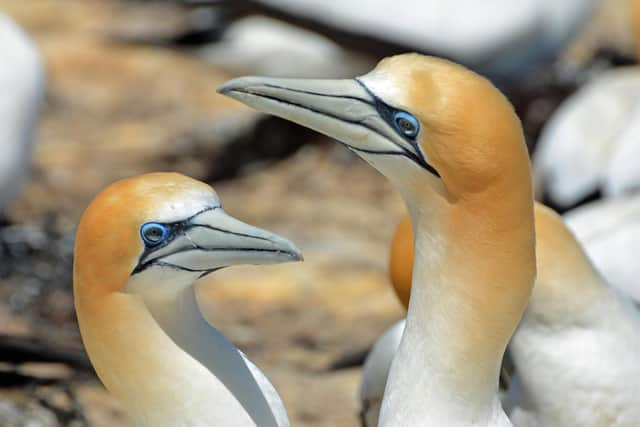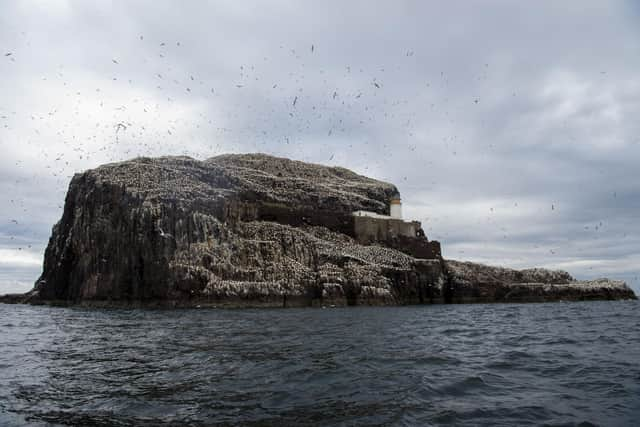East Lothian gannet colony on Bass Rock infected with avian flu after hundreds of seabirds found dead
and live on Freeview channel 276
The Scottish Seabird Centre announced the news on Facebook, and shared a comparison image of Bass Rock from April 2021 and June 2022. From the image, it appears that the population of gannets has dropped significantly.
The North Berwick based conservation charity wrote: “We will continue to track how the disease is spreading within the colony.
Advertisement
Hide AdAdvertisement
Hide Ad"The scale of impact may not be known for some time, but reports in other affected species suggest there may be a high level of mortality. Very worrying and distressing times.”
Last weekend, over 200 seabirds were reported dead by East Lothian Council rangers.
Bass Rock, which is situated in the Firth of Forth, is home to the world’s largest colony of northern gannets.
Locals have been urged to keep their dogs on leads and keep them away from dead or sick birds, as dogs who come into close contact can spread the flu to other locations. Members of the public should also avoid touching the birds.
Advertisement
Hide AdAdvertisement
Hide Ad

Susan Davies, CEO of the Scottish Seabird Centre said: “Avian flu has been confirmed by testing in several gannets that were found dead along the East Lothian coastline – stretching from Portobello to Dunbar. These birds are from the world’s largest northern gannet colony on the Bass Rock in East Lothian which is widely recognised as an amazing wildlife spectacle.
"Each day the story unfolds further on the island. Patches within the colony, which would have been packed tightly with noisy and boisterous gannets sharing the responsibility of protecting their precious eggs and feeding young chicks (gugas), are becoming more sparsely occupied as each day passes.
“We feel powerless. We can only watch and monitor the passage of the disease as it spreads through the colony. We need resources to undertake survey work – including by drone – in the coming weeks. This will enable us to get a better handle on the scale of impact and to better monitor the recovery of the colony in years to come.
“This story is far from over. It is only with time that we will know the full extent of the impact of avian flu on these spectacular birds and other seabird colonies.
Advertisement
Hide AdAdvertisement
Hide Ad

“This is not just about avian flu on the Bass Rock it is about the health and protection of seabird colonies across Scotland, which face multiple pressures not least from climate change, invasive species, pollution and over-fishing. The need for a Seabird Conservation Strategy and action plan for Scotland has never been more needed, and we urge Scottish Government to make rapid progress with this.”
The seabird centre has urged members of the public to report the sighting of dead birds to Defra on 03459 335577 or to the Council Ranger service, who will collect dead birds from public areas such as beaches, who can be contacted via the council call line on 01875 824 300.
Any sick or injured birds should be reported to the SSPCA on 03000 999 999.
Comment Guidelines
National World encourages reader discussion on our stories. User feedback, insights and back-and-forth exchanges add a rich layer of context to reporting. Please review our Community Guidelines before commenting.
